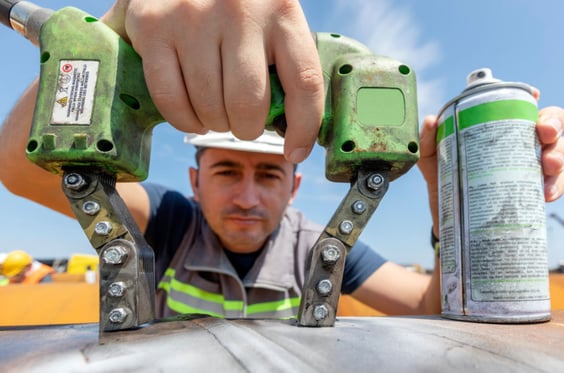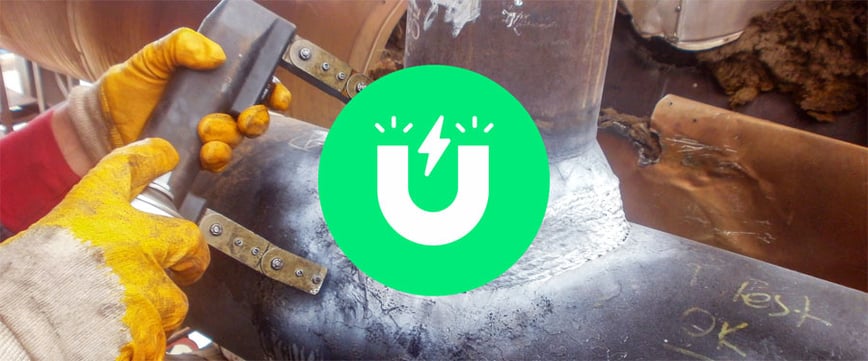Magnetic Particle Testing (MPI)
Attract quality with magnetic particle inspection!
Get quotes for this non-destructive testing technique used to identify potential flaws in ferromagnetic materials such as iron, nickel and cobalt.
Magnetic Particle Inspection (MPI) is a non-destructive testing technique used to identify potential flaws in ferromagnetic materials such as iron, nickel and cobalt. By applying magnetization to the material under test and then covering it with magnetic particles, any areas that have flux leakage due to cracks or subsurface defects will be highlighted - making MPI an invaluable tool for quality control within industries like aerospace, automotive & power generation who rely on its ability to prevent catastrophic failures. Performing MPI correctly however requires special skill sets; specialized equipment and comprehensive training are all essential components of successful inspections.
Are you in the manufacturing or maintenance field looking to ensure the highest quality of parts and equipment? Magnetic Particle Inspection (MPI) is your go-to solution for reliable testing, offering unbeatable accuracy.
How can we help you with your Magnetic Particle Inspection (MPI)?
MPI is a crucial quality control tool that can be the difference between success and failure. From engine components in aerospace to shafts in power generation, this technique helps ensure safety and reliability for any critical parts - keeping catastrophic failures at bay! Its popularity spans across industries including automotive, aerospace, and even power generation.
To ensure the safety and accuracy of your parts or components, our MPI inspector has been trained in the principles of magnetism as well as operating specialized equipment. With their expertise, you can rest assured that any flaws detected during the inspection will be accurately identified to make informed decisions about product acceptability.
Our diligent MPI inspectors are essential for preserving the quality and safety of products and services. They inspect with expertise, possessing keen eyes to detect abnormalities or discrepancies from set standards. No task is too hard; our inspectors can work independently or coordinate as part of a team if needed. Their willingness to grow their competencies gives them an unshakeable edge in ensuring secure working conditions everywhere they go!
Our network of inspectors use various methods for Magnetic Particle Inspection (MPI) to detect and locate surface and near-surface flaws in ferromagnetic materials. Some of these methods are:
Yoke Method: This method involves using an electrically powered yoke to create a magnetic field in the material under inspection.Coil Method: In this method, an electrically powered coil is used to generate a magnetic field in the material.
Prod Method: This method involves using a hand-held probe to induce a magnetic field in the material.
Central Conductor Method: This method uses a central conductor to create a magnetic field in the material under inspection.
Indirect Method: This method involves inducing a magnetic field in the material by placing it in a magnetic field generated by an external source.
Residual Method: In this method, residual magnetism in the material is utilized to detect surface and near-surface flaws.
By infusing materials with a magnetic field, our inspectors can pinpoint potential cracks and fissures that may be invisible to the naked eye. With this advanced technique, imperfections in the material surface are revealed using an accumulation of particles where flux leakage occurs - giving accurate results for flawless inspection.

Use our global database of professionals.
At Inspexion.com, we provide a variety of inspection quotes for NDT inspections. We pride ourselves on being the quickest and most cost-effective way for you to get the right inspections done. Simply sign up and post a request for services and our network of qualified inspectors will bid for your project. Select the quote that suits your budget and timeframe and an experienced inspector will do an NDT inspection and send you a report in your chosen time frame - it's never been easier to manage your NDT inspections.
Why Choose Us
Global Network of Professionals
Vetted and registered professionals in a worldwide network.

Define your own
Timeline
Define the timeframe for inspections, assign deadlines for the report and submissions!

Manage from one Dashboard
Appoint multiple inspectors in multiple countries to inspect multiple specifications, and manage them all from one dashboard!






